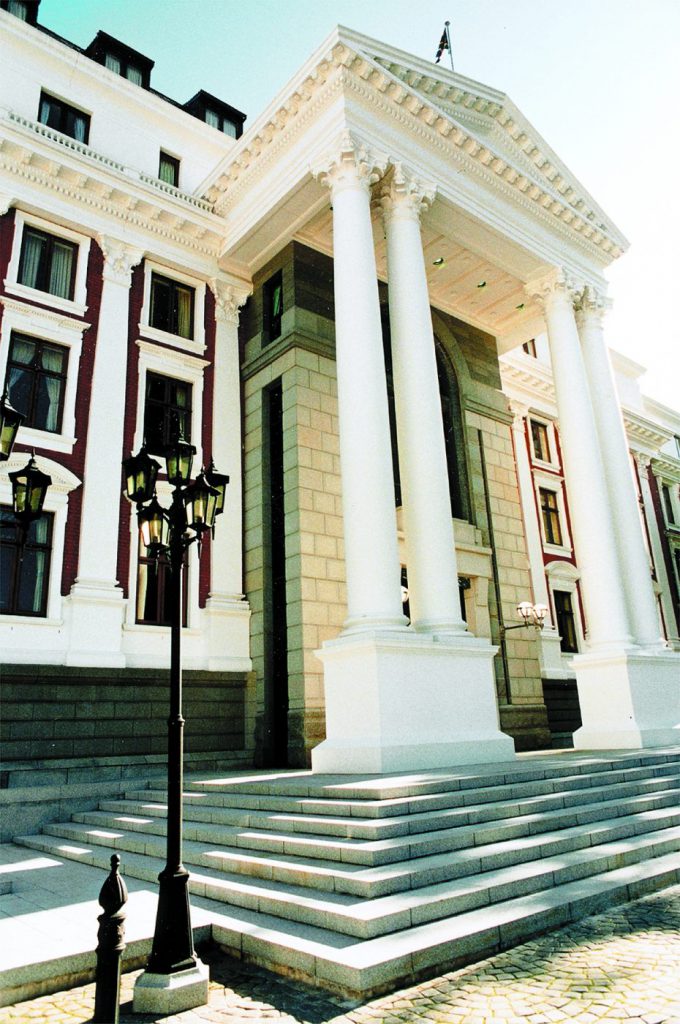Government & Politics Voice of the Local Government
A Word From Parliament
SALGA continues to play its customary role in representing the interests of its member municipalities during parliamentary processes. Most recently, the organisation has been closely involved with the National Council of Provinces (NCOP) through its participation in a number of debates.
With August being Women’s Month, Cllr Sindiswa Gomba, SALGA Women’s Commission Chairperson, spoke about protecting the rights of women and the girl child against violence and abuse.
In particular, she pointed out that gender-based violence (GBV) is a profound and widespread problem in South Africa, impacting on almost every aspect of life. So, when it comes to protecting rights, the government needs to review legislation, practices and customs and abolish those that discriminate against women. Laws, policies and programmes that explicitly prohibit and punish violence must be put in place in line with international agreements.
Moreover, she highlighted that it was important for government to improve the quality and accessibility of critical services, so that women can have prompt access to services that will assist them in situations of violence, regardless of their location, race, age or income.
Speaking at the NCOP debate on the CoGTA budget vote, Cllr Bhekumzi Stofile pointed out that SALGA, as representatives of the local government sector, was deeply encouraged by the indication given by the minister in his budget vote that further attention would be given to the aspect of councillor welfare and support. SALGA is of the view that greater attention should be placed on ensuring the safety of political office bearers in the local sphere of government.
In the same debate, SALGA recommended that the entire basket of functions necessary for the configuration of the built environment be devolved to the local government sphere. Cllr Stofile explained that it is recognised that this will not only require a holistic review of the system of local government, but also the attendant funding mechanism. This would require local government to have a share of the national fiscus larger than its current 9%.
Finally, he pointed out that in relation to debts owed to Eskom, it is important for local government to lead by example – in other words, not only encouraging communities to pay for services rendered, but also honouring its own commitment to do the same.
During the water and sanitation budget vote debate, Cllr Stofile stated that SALGA, on behalf of the local government sector, wished to propose a number of key issues that warrant urgent consideration. These issues, he said, relate to seeking to enhance the implementation of water and sanitation delivery at a municipal level.
In the context of the current legislative review, SALGA proposed working together towards the reconfiguration of Catchment Management Agencies’ institutional arrangements. In addition, it was suggested that, in a quest to ensure a smooth roll out of dignified sanitation to communities, the implementation of the recently approved sanitation policy by the Cabinet required an intensive engagement between the department and municipalities.
Further proposals included: the exploration of revenue management, including appropriate tariff-setting, regular billing and effective collection systems; and mechanisms of improving asset management, including adherence to invest 8% percent of the value of assets for maintenance.
SALGA also pointed out that it was concerned by the escalation of debt owed to water boards by municipalities in the same way it was concerned by the debt owed to municipalities by communities.
Finally, during the NCOP Plenary Debate on Energy Policy, Cllr Stofile outlined the urgent need to transform the energy provision sector, especially in terms of the role of municipalities in energy generation.
SALGA indicated that if municipalities were able to develop their own energy generation projects and procure energy from local sources, it would go a long way towards unlocking local economic development and job opportunities. This would also substantially contribute towards ensuring security of supply and stabilising the ever-increasing prices of electricity and energy, which would benefit the economy as a whole. SALGA thus advocated for a policy framework where municipalities become more energy self-sufficient, something that is particularly crucial as access to energy and electricity increases across the population.






 Sign-up and receive the Business Media MAGS newsletter OR SA Mining newsletter straight to your inbox.
Sign-up and receive the Business Media MAGS newsletter OR SA Mining newsletter straight to your inbox.